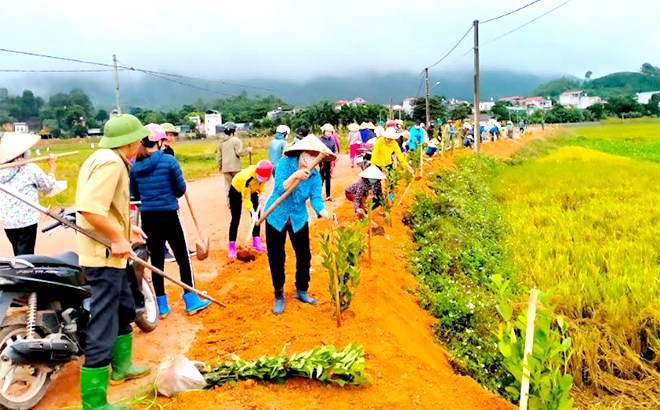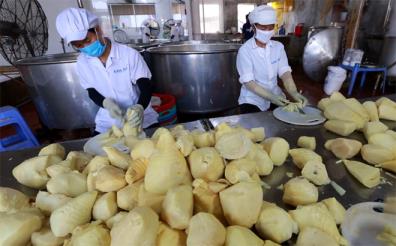Dong Cuong commune active in protecting rural environment
- Thursday, May 5, 2022
YBO - Dong Cuong commune in Van Yen district has established 10 self-management groups for environmental protection with 292 members, while 1,883 of the 2,003 households in the commune, or 94 percent, collect and treat waste under regulations and 1,009, or 50.4 percent, classify domestic waste at the source.

|
|
People in Dong Cuong commune in Van Yen district plant trees to beautify the landscape and environment.
|
Other news

In 2024, Nghia Lo Town developed seven new products meeting the 3-star OCOP standard and reevaluated seven products after three years of certification.

Yen Bai develops comprehensive transportation infrastructure, prioritizing projects that connect national highways with the Noi Bai - Lao Cai Expressway, regional linkage projects, and those connecting Yen Bai province with localities in the Northern Midlands and Mountainous region. The focus is on key projects and several important regional and inter-regional connecting roads. As of now, the transportation infrastructure system in Yen Bai has achieved significant progress.

The global Halal market is valued at approximately USD 5 trillion annually, with a strong demand for cinnamon and tea products. This presents significant export opportunities for Yen Bai Province.

In 2024, Yen Bai City achieved vocational training for 2,259 individuals, exceeding the target of 1,790 by 115%. Of this total, 578 people were trained at the college level, achieving 125% of the assigned target of 461.



